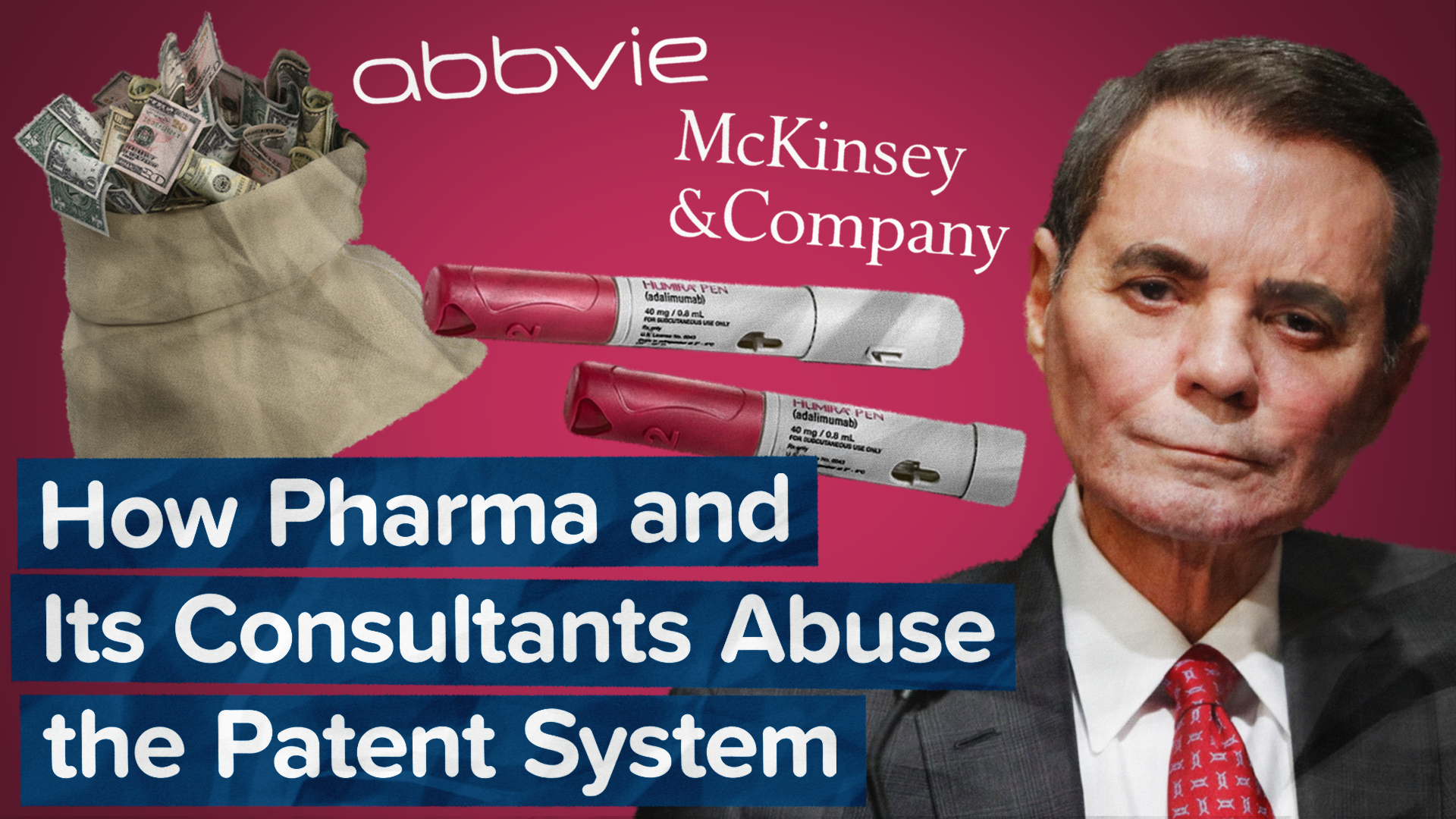Humira is one of the most lucrative and most heavily patented drugs in history.
Thanks to a 2021 investigation by the House Committee on Oversight and Reform, we know that AbbVie worked extensively with the consulting firm McKinsey to refine and expand their strategies for manipulating the U.S. patent system.
McKinsey presented patent abuse strategies to AbbVie’s CEO Richard Gonzalez in 2010. A few months later, in January of 2011, Gonzalez directed his team to “look for ways to grow and protect” Humira. Between the sending of that memo in 2011 and 2023, AbbVie filed a staggering
215 new patents on Humira while raising its price to $80,000 per year.
This egregious overpatenting is not just an AbbVie and McKinsey issue—it’s industry standard.
To put a stop to this abuse, we need to fix the U.S. patent system and close the loopholes that drug companies and their consultants exploit.
Video Transcript:
Pharmaceutical companies will do whatever they can to raise drug prices, including hiring the infamous consulting firm McKinsey to help them abuse the US patent system.
Here’s the story of how pharma and its consultants schemed to hike prices on Humira, one of the most lucrative drugs in history.
In 2021, a Congressional investigation uncovered a 2010 presentation McKinsey made to Richard Gonzalez, then CEO of the pharma company Abbvie.
AbbVie was worried that, when its patents on the blockbuster drug Humira expired, competitors would release more affordable biosimilar versions of the drug.
Abbvie asked McKinsey to tell them “what could be done to minimize” the risk of competition.
In August of 2010, McKinsey delivered a plan. It directed AbbVie to “differentiate the product through extensions” and “broaden” Humira’s “patent estate”.
In plain English, that means file a lot of frivolous patents on Humira to keep competitors off the market. They wouldn’t have to invent anything new, just invent new patents.
And that’s exactly what they did.
Just 5 months later, Gonzalez sent a memo directing his team to intensify their efforts to “grow and protect Humira”.
Gonzalez sent his memo on January 19th, 2011. Between 2011 and 2023, AbbVie filed 215 new patents on Humira.
A biosimilar competitor finally got into the market in 2023 — 7 years after AbbVie’s main patent had expired. By that point, AbbVie had increased the price for a year’s supply of Humira to a staggering $80,000.
This isn’t a unique story. Abusing the patent system to block competition and raise prices is standard practice in the pharmaceutical industry.
Congress knows this. Now, they just have to act and stop patent abuse once and for all.
